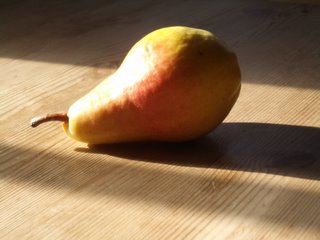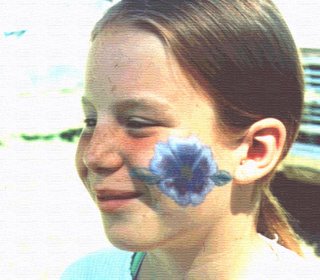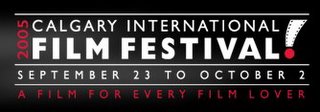Unfinished Works
Thanks to Gail on the Web for the great photo
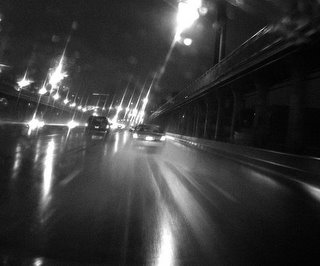 The road ahead is wetly obscured, not by rain or snow or any expectable encrustation normally applied by winter weather, but by tears.
The road ahead is wetly obscured, not by rain or snow or any expectable encrustation normally applied by winter weather, but by tears.
She is afraid. Many years before, she drove down this same road to bring news that would rend the carefully laid foundations of her mother’s home. Little of the passing streetscape has changed since that other time. But everything changed with that last drive and everything would change again with this one.
Her home growing up was not the peaceful refuge described in the novels she read in her childhood or romanticized in films she watched every Sunday night on The World of Disney. On the surface, and to most observers, home of then looked warm and inviting – a carefully cultivated façade, created for the benefit of church friends and members of the Baptist Ladies Auxiliary. But home hid many secrets and skeletons. She was about to rip open the family closet and reveal a specimen long forgot.
She spends only a few minutes in the car, driving home. In literal terms, it isn’t far away from where she now lives. In another sense, the drive covers many years, many changes, much pain and not a little joy. This drive represents a life path between the then and now, the what was, what could have been and what now is.
She could not have imagined how, 18 years before, a chance meeting in a nearby C-Train station would radically alter her life, or how, 16 years after than meeting, the same person would again, unintentionally and unknowingly cause another seismic shift in her life.
Houses flash by in the electric dark. She slips backward in time as the streetlights flash by.
1982
 It is fall in Calgary -- still on the warm side of coat weather. She is hurrying to catch the C-train that will take her to a job interview, the first she has had since returning to Calgary after two years in Montreal. Rushing into the station, she glances briefly at a shock of spiky platinum blond hair bobbing above a broom, wielded by a tall, wiry young man. Her momentary interest dissolves quickly, making room for the issue at hand; the interview and potential job. As she races up the terra cotta tiled stairs, he speaks. Startled to be addressed by this odd stranger, and curious because she did not understand his question, she stops in mid-stride.
It is fall in Calgary -- still on the warm side of coat weather. She is hurrying to catch the C-train that will take her to a job interview, the first she has had since returning to Calgary after two years in Montreal. Rushing into the station, she glances briefly at a shock of spiky platinum blond hair bobbing above a broom, wielded by a tall, wiry young man. Her momentary interest dissolves quickly, making room for the issue at hand; the interview and potential job. As she races up the terra cotta tiled stairs, he speaks. Startled to be addressed by this odd stranger, and curious because she did not understand his question, she stops in mid-stride.
“Sorry?” she says
He speaks again and his brow begins to crease in frustration.
“I’m sorry,” she says again, “I can’t understand you. What did you say?” she asks, sheepishly. She thinks perhaps she’s having a momentary lapse. Perhaps her ear is still adjusting to English after so long hearing only French.
“A-R-E Y-O-U- E-N-G-L-I-S-H,” he says slowly, deliberately, in a thick, British accent.
“English? Yes, no, not British, I’m from here,” she says in a rush, laughing nervously. Who is this weirdo, she wonders.
“Oi, I thought you were English,” he says, pointing rudely to the blond streak in her hair. “Your hair is all the fashion in England.”
She laughs, forgets about her job interview and in a handful of minutes, they become friends and agree to meet for beer later that night.
They become fast friends, she because he is interesting and exotic and he, because his accent is so thick – he has only arrived from England two months before – that he cannot make himself understood. Their worlds expand by miles. Several months later, his friends “Gonk” and “Ratty” arrive from England.
More friendships are forged and an invitation to visit England sends her world spinning on a new axis, although none of them, in their blind youth, feel the tilt.
In the spring, she travels to England, partially for holiday, partially with a the purpose of gaining an overseas education. More friendships are made and she promises to return in September. She does, with a friend, taking lodging in a local pub’s bed and breakfast.
Hastily unpacking only the essentials – makeup and some fancy clothes, she and her friend rush to get ready. She is buzzing with excitement and impatient to see her English friends and to introduce her companion, Vicki. The pub owner knocks at the door of their rented room, admonishing them to get along; she is busy, patrons are waiting for their pints and wouldn’t the girls please go out.
“You’re welcome back any time after 6:00 tonight, but not before,” she states in a voice that stops any question.
They don’t care. They are more impatient that she to be out and about. Flinging their partially closed suitcases in the general direction of the room’s two sagging single beds, they rush out into the gray English afternoon and flag a cab.
Rackstraws. The local pub. The home base, center of the world, location of every friend that ever was and ever would be. Dragging her companion by one arm, she bursts into the dim, crowded warmth, eyes searching and finding familiar faces. Towering above the group, she sees the curly, ginger-haired head of the only quiet one among them. She doesn’t know him well – he rarely speaks – but she remembers the slow smile that is spreading across his features now.
At six feet, one inch, he sees the girls first, over the heads of the group members, whose heads turn to follow his gaze towards the door. She and Vicki are shortly engulfed in shouts of welcome and hugs. He stands back, watching, maybe waiting, not inclined to move or speak. She is surprised later, when his long legs carry him to their crowded table and even more surprised when he speaks, asking where they are staying.
“We’re at the pub down the road, which is to say, we’re there to 9:00 in the morning and not again till 6:00 at night, but not in between. And,” she adds, “We’re paying 16 quid a night for that privilege.”
“That’s very dear for a B&B,” he comments. “Will you stay on there?”
“We don’t have any plans except to travel around and see as much as we can.” She replies. “We’ll probably be out most of the time and up in London for two weeks anyway.”
“It is too dear, he comments, scuffing the floor with his worn loafers. “Why don’t you and Vicki come stay in my place? It’s only up the road. You’ll only have groceries to pay, right?”
~
Sitting on the double bed in his room six weeks later, holding her working visa and passport with shaky hands, she is crying.
“Michael, I’m pregnant.”
His already pale English skin blanches to alabaster, She hears his breathing become ragged and rough. She watches him, his back to her, his shoulders rising slowly, knotted with tension.
“You know a lot of people here….”
“Maybe, but I’m been sleeping with you, she retorts harshly.
“Are you sure? Have you seen a doctor?
“Positive! Yes! No, I haven’t seen a doctor. I know I’m pregnant.”
She hears her voice rising, becoming thin and strident with panic.
“You find out for sure. Go to the doctor,” he says, quietly, striding from the room. She sits, shocked, listening to the muffled but rapid thumps of his feet running down the carpeted stairs. Downstairs, The kitchen door slams and his grandmother, startled, croaks “Micky!” frightened by his haste.
The plans she had made, to stay and work and live in England, had been replaced with no design and no fathomable path. She had called once, before she left the country, trying to find some sense of how they could go forward, but the phone, needing a constant supply of coins, went dead in her hand as she spoke. She had left England a week after that bleak night, without seeing Michael again, nothing solved, friendships ruined and a child on the way. It had taken her weeks to find the courage to tell her mother about why she had left England. Such a revelation had battered her mother’s fragile belief that she had raised good Christian daughters, regardless of, or in spite of, the truths she lived with but was blind to. Her mother had been hysterical for weeks after.
2000
Fifteen years after that first meeting in the C-Train station, the blond Englishman returned to Canada. During a brief lunch, they caught up on friends and life and love and hesitantly broached the subject of her daughter’s unknown English family. A week later, she sat before her computer composing a letter to Michael, at first having no intention of even saving it. But her daughter is curious about her father, and more so since she has had recent news. He is no longer a story, much less a complete unknown. They decide to send the brief letter.
After receiving the letter from the daughter he has never known, Michael travels across time and the unknown to meet her and her family.
It was a wonderful week. A stranger no longer, he provided a precious missing piece of their daughter’s life. He has given himself as a father, when he could easily have continued in silent anonymity.
2001
She is terrified. As she travels along towards her childhood home, she wonders how she will tell her mother that the unwritten chapter had now been completed and a lifetime of stories would now be written? Her mother has spent years hating the stranger who is the father of her grandchild. Would this opening of a book closed and lost bring on weeks of anger and oceans of tears?
The light ahead flashes to amber. As she pulls slowly to a stop, she draws a ragged breath, wiping tears and dripping makeup from her chin. A deep breath. The light changes from red to green and she inches ahead. Rounding the next corner, her mother’s house comes into view and life shifts again.
 Well, I never.... Actually, I usually... am surprised by how little of what people read they actually understand and how much they let their emotions get away with them.
Well, I never.... Actually, I usually... am surprised by how little of what people read they actually understand and how much they let their emotions get away with them.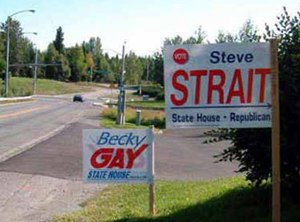 statements, rather than suggestions. He did not, however, respond to the two core items in the letter, being the whole acceptance thing and the realities of the human condition. So I hope, that by trying to discredit what I'd written, the rebutter managed to call some further interest to my letter and to show up his core intolerance and that of those who think like him.
statements, rather than suggestions. He did not, however, respond to the two core items in the letter, being the whole acceptance thing and the realities of the human condition. So I hope, that by trying to discredit what I'd written, the rebutter managed to call some further interest to my letter and to show up his core intolerance and that of those who think like him.